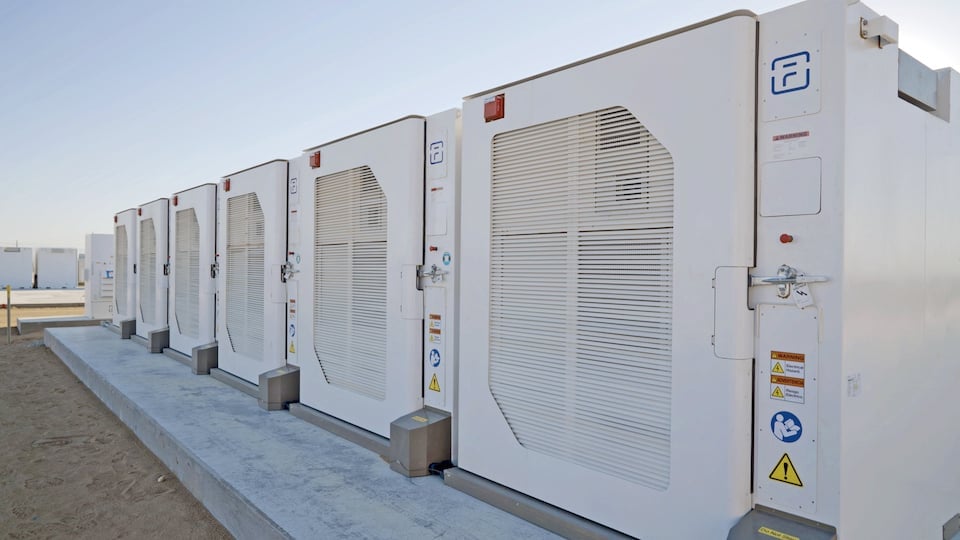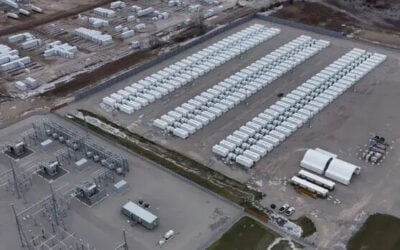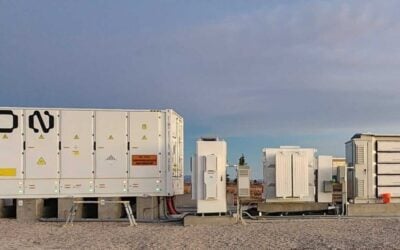
AI-driven asset management startup Proximal Energy has been selected by investor Excelsior Energy Capital to optimise a fleet of battery storage projects in the US.
Renewable energy infrastructure investor Excelsior’s pipeline of battery energy storage system (BESS) projects will be monitored in real-time, and their performance will be enhanced using Proximal’s software platform and AI ‘agents’.
An announcement yesterday (15 October) offered no details on the specific projects to be onboarded to the platform but said the deal comprised a 2GWh pipeline of storage assets in the US.
Proximal claims its proprietary solution, Agentic Asset Management, powered by generative AI models, enables asset managers and operations and maintenance (O&M) providers to use artificial intelligence ‘agents’ fed asset data from sources including user manuals, warranties and contracts.
Try Premium for just $1
- Full premium access for the first month at only $1
- Converts to an annual rate after 30 days unless cancelled
- Cancel anytime during the trial period
Premium Benefits
- Expert industry analysis and interviews
- Digital access to PV Tech Power journal
- Exclusive event discounts
Or get the full Premium subscription right away
Or continue reading this article for free
The robotic agents can also analyse time series data, i.e., data collected from the asset at timed intervals, to pinpoint underperformance events and to calculate key performance indicator (KPI) metrics.
“Proximal’s AI-driven platform will allow us to proactively manage our assets, mitigate risks, and ensure our energy storage projects are consistently operating at their full potential,” Excelsior Energy Capital asset management director Dan Rosenberg said.
Proximal Energy was founded this year by CEO Rob van Haaren, a former First Solar utility-scale solar and storage analyst and artificial intelligence consultant and CTO Marcus Marosvari, formerly a software engineer at renewable energy developer and independent power producer (IPP) Clenera.
Not much further information is publicly available on the Proximal Energy website about its software solutions—which is not uncommon for startups in the space—although it does claim the company currently has a 1.4GW asset management portfolio and to date has analysed 3,200 underperformance events.
Digital technologies for asset management and optimisation are becoming a major trend in clean energy, particularly in battery storage, where contracts and warranties can be stringent, and the penalties for non-compliance or lack of availability can have a major impact in financial or regulatory terms.
Excelsior’s deals for US-made battery storage and PV
Excelsior Energy Capital signed a supply deal with energy storage system integrator and technology provider Fluence for 2.2GWh of BESS equipment in July.
The equipment will include Fluence’s own battery modules manufactured at its production line in Utah and battery cells also manufactured in the US and supplied to Fluence for integration by Envision AESC from its factory in Tennessee, which has been retooled from produced batteries for the Nissan Leaf electric vehicle (EV).
A Fluence spokesperson told Energy-Storage.news at the time that deal was announced that in addition to the modules and cells, supporting systems in the Fluence Gridstack Pro BESS units would also be made in the US, qualifying Excelsior’s projects for the domestic content bonus through Inflation Reduction Act (IRA) tax credit incentives.
Excelsior also has a 2GW supply deal for solar PV modules with Heliene, a startup that, again, is ramping up US-based manufacturing of products that could be eligible for tax credits at a higher rate. Our colleagues at PV Tech reported that agreement in April.
The investor, which has solar, wind and energy storage assets in its portfolio, launched an independent power producer (IPP) platform, Lydian Energy, to develop North American solar and battery storage projects, also in April of this year.





